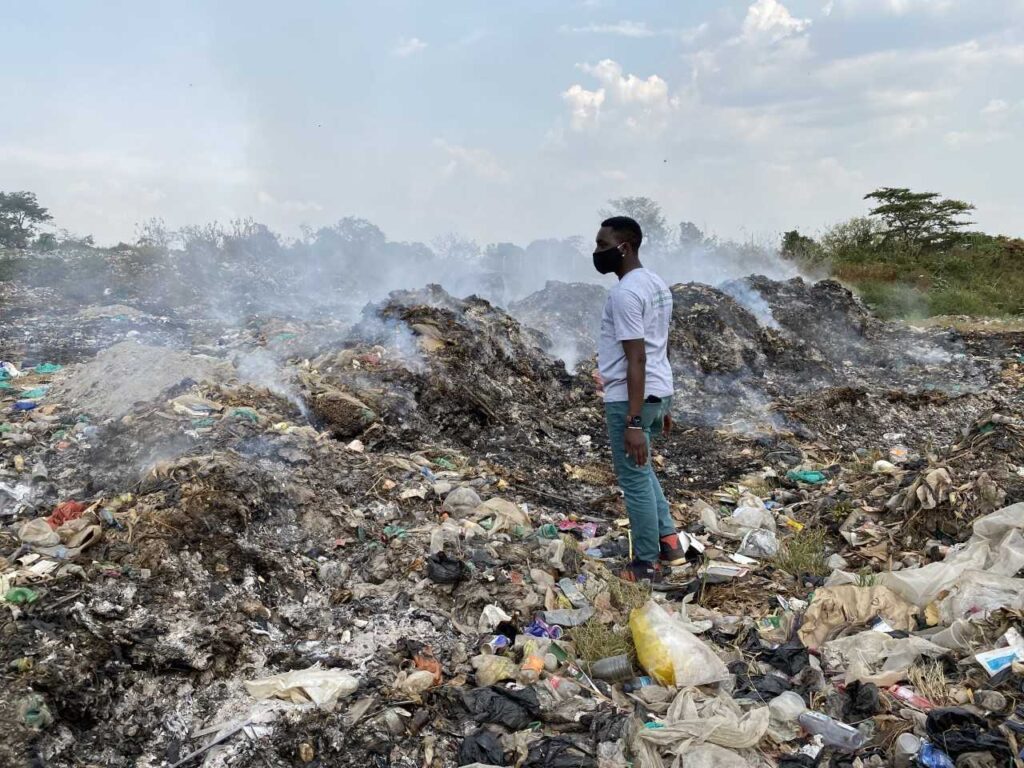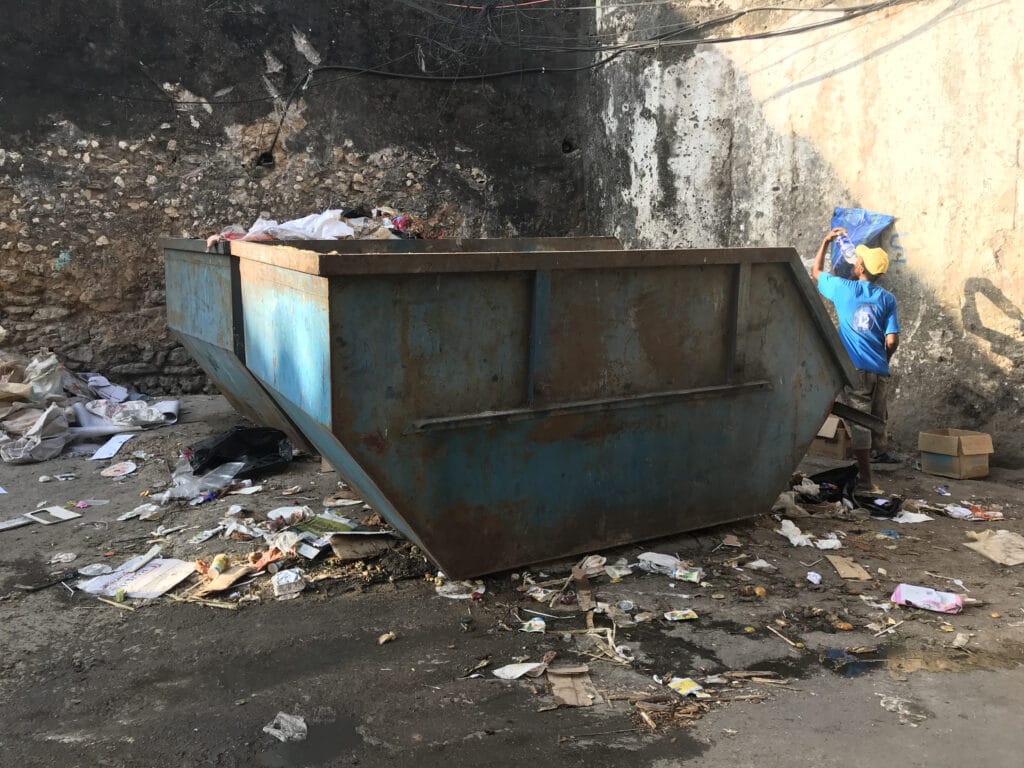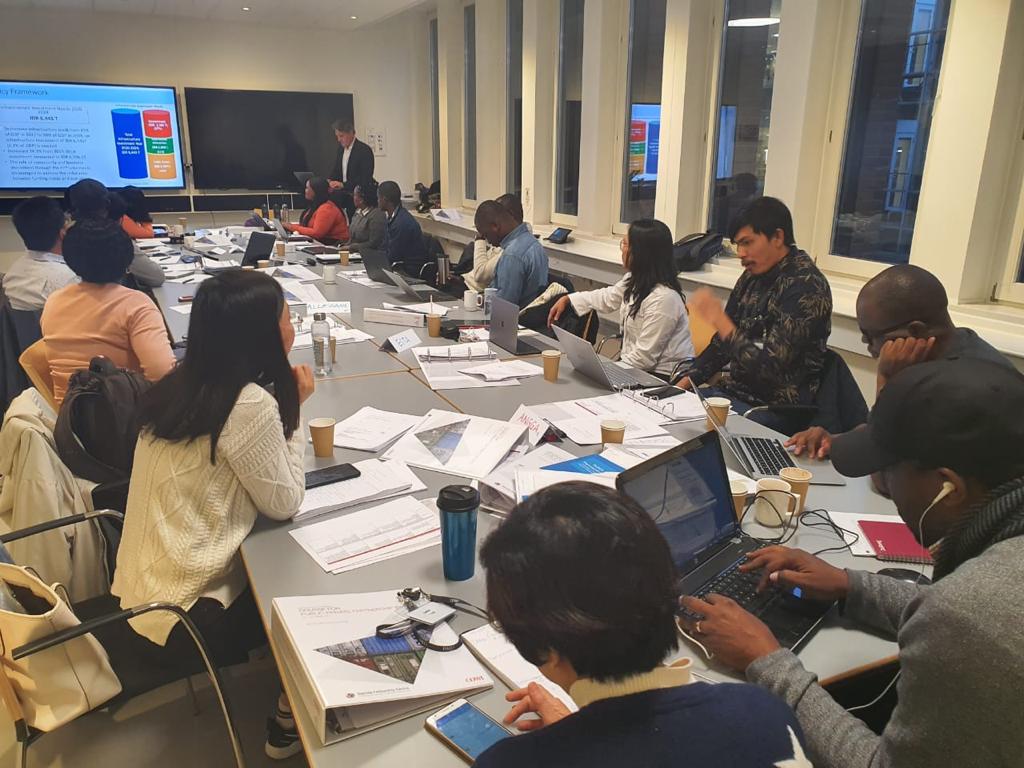Dos and don’ts in public-private partnerships
22-02-21

Danida Fellowship Centre’s learning programmes in Private-Public Partnership prepares the participants with skills to manoeuvring the often delicate partnership between the private and public sector. Peter Mallow, COWI consultant and lead facilitator explains some of the dos and don’ts.
By Elena Adamo & Vibeke Quaade
Solid waste management is often a challenge for large cities. Especially if informal settlements constitute large areas of the urban space. Add to this financial constraint and inadequate capacity to handle the waste problem from the side of the local governments. The negative results of an inefficient municipal solid waste management system, however, may create serious negative environmental impacts like land and water pollution, blockages of drains and harm to the environment.
If the public sector is not in a position to sufficiently tackle a city’s waste collection, a public-private partnership may be a solution, says Peter Mallow, from COWI, a leading Danish multi-disciplinary consulting company.
Solid waste management as an example
Peter Mallow is a transport economist and private-public partnership specialist at COWI. He has been one of the lead facilitators of Danida Fellowship Centre’s learning programmes in public-private partnerships since 2014. He often uses solid waste management as an example of how local government and the private sector may benefit from collaborating with one another.
The fundamental aspects of public-private partnerships, both the positive and the challenging parts, are easy to illustrate with examples of how collaborations between the public and the private sector take place around solid waste management, Peter Mallow says.
For example, in places such as Nairobi and Kampala, only a small part of the population can afford waste collection. For a much larger low-income group it is not possible to pay for waste collection, and if it is, the payments from this group often come with discontinuity. This creates an unstable solid waste management system that inevitably disfavours both the citizens and the environment.

Due to limited resources and financial capacity, the public sector may not be able to find a solution to the issue on its own. However, from the side of the private sector, waste collection may be seen as an attractive business case because the customer base is relatively safe and predictable, which reduces the financial risks.
The public-private partnerships around waste management clearly illustrate that the private sector will always look for profit. To make sustainable contracts between the public and private sector a business case will have to be very strong, Peter Mallow says.
Risk management is key
Although public-private partnerships are an attractive proposition for involving the private sector in international development cooperation, Peter Mallow warns his participants from idolizing public-private partnership as a one-stop solution. He stresses the importance of knowing its strengths and being able to recognize where the public-private partnership can constitute the solution.

Rule number one: to minimize risks is to align the expectations between the partners from the beginning and setting a clear regulatory framework and an adequate risk-sharing mechanism, explains Peter Mallow. Otherwise, the failure of the project often leads the public sector to carry the full burden of risks.
The participants at Danida Fellowship Centre’s learning programmes mostly come from partner organisations and institutions in the growth and developing countries that Denmark collaborates with, and most of them have limited experience with public-private partnerships. Others are quite experienced, like Eamon Bertrand Marais, Project Manager and Project Development at Gauteng Infrastructure Financing Agency in South Africa, who participated in the course in December 2020.
Eamon Bertrand had mainly worked with public-private partnerships in the health sector. He agrees with Peter Mallow on the importance of public-private partnership legislation and frameworks.
I will use the course content to find ways to improve public-private legislation and frameworks especially in the health and agricultural sector, says Eamon Bertrand Marais, who participated in the learning programme because it complemented his current work experience of being responsible for seven projects in different sectors.
Read more about Eamon Bertrand Marais experience
Ali Diallo, another participant from the December 2020 learning programme does not have previous experience with public-private partnerships.
Truth to be told, I have never carried out a public-private partnership PP project, says Ali Diallo, an expert in financing, business development and partnerships, with over 20 years of experience in the field of support to the private sector.
The few times I have discussed public-private partnerships with bankers and customers, we never did anything about it. Now that I attended a Danida Fellowship Centre’s course I feel like a have a better knowledge of this area
Read more about Ali Diallo’s experience
Danida Fellowship Centre has offered learning programmes in public-private partnership since 2014. 229 from 24 countries have participated. Read more about our tailored courses and learning programmes
Go back to our stories